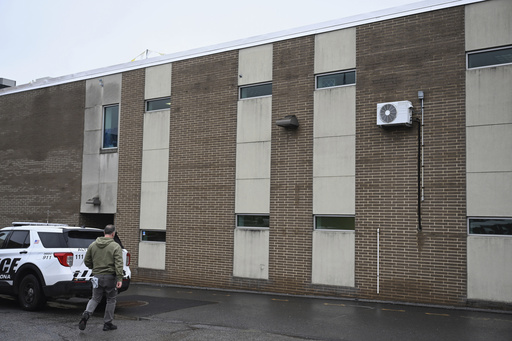PHILADELPHIA — Over 400 tips were submitted to the New York Police Department’s Crime Stoppers tip line during a five-day manhunt for the masked gunman responsible for the ambush and murder of UnitedHealthcare CEO Brian Thompson last week.
NYPD officials indicated that approximately 30 of these tips provided valuable information regarding the suspect’s activities prior to and following the shooting on December 4. However, it was a 911 call from a McDonald’s employee in Altoona, Pennsylvania that ultimately allowed law enforcement to pinpoint the suspect.
The FBI and Crime Stoppers program had promised rewards totaling up to $60,000 for tips that would assist in solving the case. Though authorities acted swiftly to apprehend and charge 26-year-old Luigi Mangione, the process of distributing any rewards could take significant time and may not amount to the promised total after taxes and other considerations.
The criteria for who qualifies for a reward is still under review by officials. It’s important to note that federal and local reward programs function under distinct sets of rules, allowing for the possibility of multiple rewards of differing amounts linked to the effectiveness of the tips received.
To be eligible for a reward through the FBI’s program—offering up to $50,000 in this instance—a tip must lead to both an arrest and a conviction. While queries directed to the FBI press office regarding specific reward protocols were not returned, various reward program websites maintained by the agency indicate that a tipster must typically be nominated by a federal agency involved in the investigation. Subsequently, a board evaluates the tip’s significance and decides on the reward amount.
For the NYPD Crime Stoppers program, which is facilitated by the New York City Police Foundation and the NYPD Detective Bureau, rewards can reach up to $3,500 but were increased to $10,000 for this case. This program requires a conviction for its portion of the award.
“The public’s assistance is vital in solving crimes and ensuring community safety,” remarked the Police Foundation board in a statement issued on Wednesday. “The individual in Pennsylvania who reported the tip is eligible to receive the reward.”
The 911 call made by the McDonald’s employee generated a recording that includes a phone number and typically a name, while calls made to the Crime Stoppers line are kept anonymous. The program guarantees that it will not track cellphone numbers or document any identifying details about tipsters, instead assigning them unique identifier numbers to follow up on the status of their tip and potential financial reward.
NYPD Chief of Detectives Joseph Kenny will evaluate which specific tips contributed to resolving the case in deciding how to allocate reward funds from the Detective Bureau, as stated by law enforcement officials on Wednesday.
When it comes to the timing of any reward distributions, it is commonly expected that rewards will not be issued until a conviction is secured. Given the serious nature of the murder charges and the involvement of multiple jurisdictions, it could take a year or more before a trial is conducted.
In regard to the $3,500 from Crime Stoppers, the board may opt to disburse funds following the completion of an indictment. Both the FBI and Crime Stoppers have boards that assess the value of the tips, consulting with detectives or other law enforcement personnel before determining which tips made a significant impact. The boards hold discretion in how much compensation each tip might warrant.
The Crime Stoppers board also has the authority to divide a reward among several tipsters or evaluate each in relation to the maximum amount based on individual circumstances.
NYPD officials have not specified how any of the 30 tips contributed to the investigation, and it seems improbable that all tipsters will receive the highest reward offered.
Historically, the police foundation and the FBI refrain from discussing individual cases or disclosing exact amounts awarded to specific tipsters. For instance, the FBI’s Rewards for Justice program has reported giving away millions over the past two decades, at times announcing the rewards publicly while keeping the identities of the tipsters confidential. Often, the agency shares a report with Congress detailing the rewards without naming individuals.
Crime Stoppers adheres to similar principles, opting not to disclose information to maintain the anonymity of those who provided tips. The program does celebrate notable instances on its site where tips have significantly aided in investigations, including a high-profile case from April 2022 involving a mass shooting that led to the arrest and guilty plea of Frank James.




